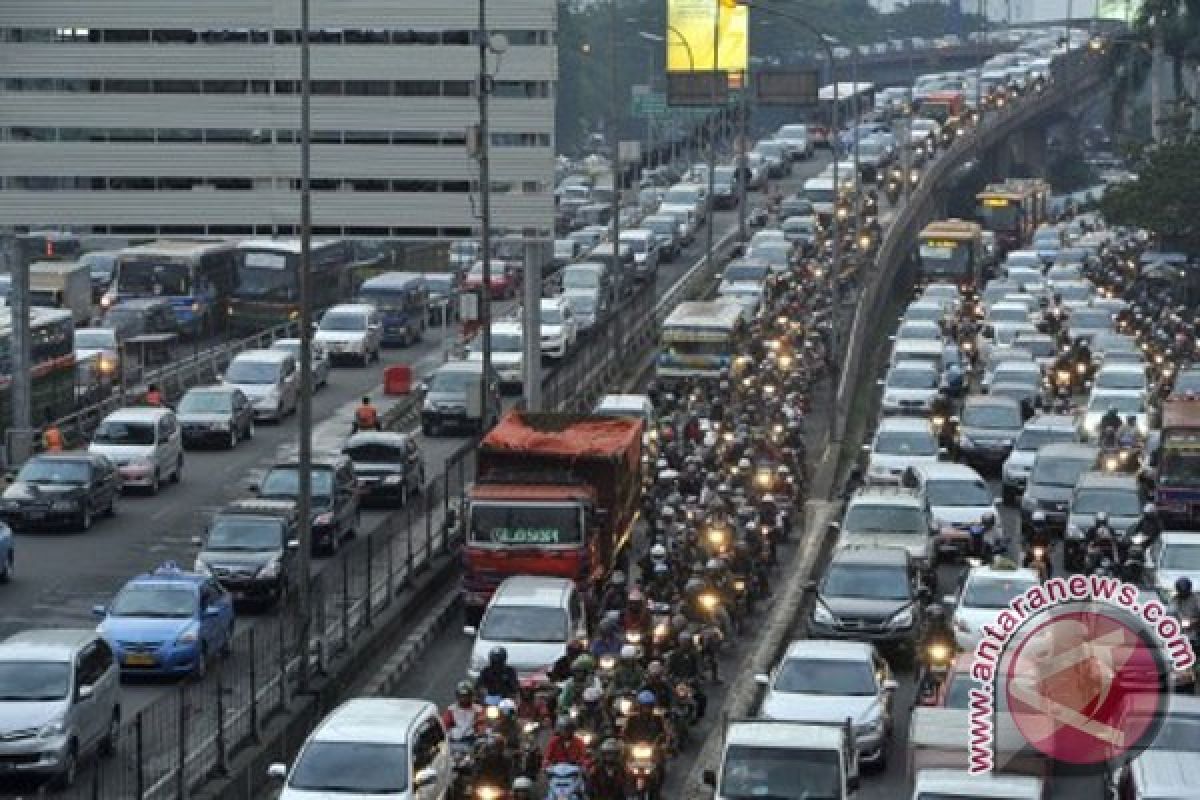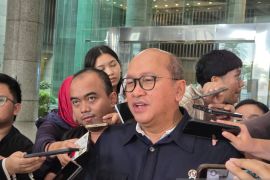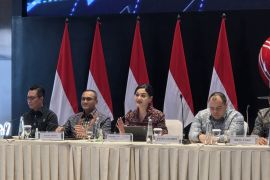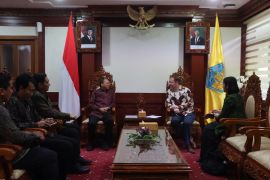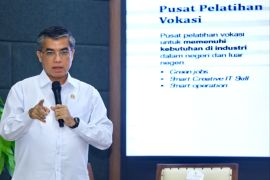With good public transport, people`s desire to use private vehicles can be suppressed."Jakarta (ANTARA News) - The recently issued policy on low-cost green cars (LCGCs), enabling people in lower classes to purchase family vehicles, has sparked controversy among people, especially those in major cities such as Jakarta.
Some have applauded the idea, saying that it is a good policy, enabling more people to own cars, while others claim that it will create more problems such as increased traffic congestion in the city and higher fuel consumption.
Recently, Jakarta`s Governor Joko Widodo criticised the policy, saying that it will worsen the traffic condition in Jakarta.
Vice President Boediono admitted that metropolitan cities in the country might be flooded with cheap cars upon the implementation of the policy, and this may worsen traffic congestion.
However, he said the central government is ready to cooperate with regional governments to deal with such problems.
He added that people may not be banned from buying cheap cars but to curb their desire, the government can provide cheap, comfortable, and safe public transport facilities and also issue regulations that will reduce the number of cars on the streets such as the imposition of an electronic road pricing (ERP) system.
"There are indeed worries that LCGCs could add to the existing problems in metropolitan cities such as Jakarta and other urban centres. Indeed, to solve the problem, central and regional governments should accelerate the improvement of public transportation. That is the key," said the vice president.
"Secondly, we need not prevent people from purchasing cars. So, let us implement the ERP system immediately. The central and regional governments must find loopholes. If they use cars, they will be required to pay (ERP)," he added.
Vice President Boediono added that the automotive industry is a strategic industry, which is the backbone of industrialisation in the country.
A researcher at Road Transport Research and Development, Ministry of Transportation, Nunuj Nurdjanah, said the policy must be seen from two perspectives - both positive and negative - in order to gain a comprehensive understanding of the policy.
"Regardless of the pros and cons touted by various parties about the LCGC programme, we need to look at both its positive and negative impacts," Nunuj Nurdjanah said earlier.
The positive impact is that the state`s income from taxes levied on the automotive sector will grow and the country`s middle class will be able to afford cars.
Moreover, motorcyclists might start driving cheap cars, preventing the entry of low-cost cars from abroad or neighbouring countries such as Thailand, which was the first country to produce cheap cars.
The negative impacts arising from the policy would be the growing number of private car owners, which would increase the usage of roads, worsen traffic congestion and increase fuel consumption, Nurdjanah stated.
Public transport enthusiasts might also have to deal with the dominance of private vehicles on the road during the Eid holiday exodus from major cities, he added.
"The implementation of the cheap car programme has caused a chain reaction and additional effort is needed to mitigate the negative impact," Nurdjanah said.
Therefore, relevant ministries such as the Ministry of Transportation, Ministry of Public Works and the Ministry of Energy and Mineral Resources will be the affected government agencies who must strive to overcome the negative effects of this cheap car programme.
In the meantime, other related agencies must also work hard to overcome the negative fallouts of local governments, especially in big cities.
The Bekasi Transportation Agency (Dishub) claims that the presence of LCGCs in the local area contradicts the public transport development programme.
"When we were focused and working mightily to urge people to switch to public transport, the cheap cars entered the market. It`s contradictory," said Head of Bekasi City Transportation Agency Supandi Budiman in Bekasi on Tuesday.
According to Supandi, the problem of traffic congestion in major cities will never be solved if all parties do not work together.
"The problem of traffic congestion will increase with the implementation of the cheap car policy," said Supandi.
According to him, cheap car regulations need to be immediately discussed and applied in Bekasi.
"The cheap car policy should have special regulations. Without regulations, the cheap car policy will create a lot of problems," he said.
Supandi added that government policies have both positive and negative effects, which is why comprehensive and mature discussions are required before implementing a policy.
"The cheap car regulation, implemented by the central government, is ideally enacted in a number of areas outside Greater Jakarta," he said.
Supandi added that the producer`s plans in targeting motorcyclists would cause a self-traffic congestion threat to major cities.
"If majority of motorcyclists switched to cheap cars, the problem of traffic jams will get worse," he said.
According to Supandi, the problem can be solved by enhancing public transport facilities.
"With good public transport, people`s desire to use private vehicles can be suppressed," he said.
Basically, there is nothing wrong in creating an opportunity for people to own cars, but traffic in the city should also be considered by the stakeholders.
(Uu.INE/KR-BSR/A014)
Reporter: Ageng Wibowo
Editor: Priyambodo RH
Copyright © ANTARA 2013
